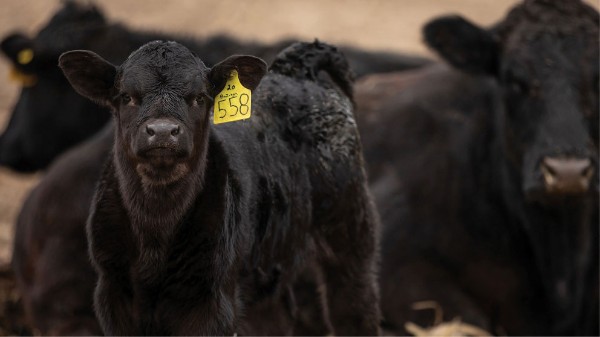Producers say Manitoba needs RCMP role dedicated to cattle theft, other agricultural crimes

An industry association that represents cattle farmers in Manitoba wants more safeguards against livestock theft in the province, including an investigative unit dedicated to tackling such crimes
by Chelsea Kemp – CBC News
Manitoba Beef Producers president Matthew Atkinson says security issues around livestock, including theft and fraud, are a growing concern.
At the industry association’s annual general meeting in Brandon on Thursday, members passed a resolution to lobby for a dedicated investigation unit to reduce livestock-related crimes.
Margins are always tight for producers, but the current value per head of cattle is relatively high, said Atkinson — making it especially important to have something in place to protect them.
“The more producers learn about the resources available to them, the better for them and for the industry as a whole”“We do need some safeguards in place to protect the producers out there … to really protect what they have,” he said.
Manitoba Beef Producers president Matthew Atkinson says with high cattle prices, it’s especially important now to protect farmers. (Chelsea Kemp/CBC)
Atkinson says Manitoba can look to other provincial models and work with the RCMP and province to build a system that protects producers and their animals.
Saskatchewan, Alberta and British Columbia all have a provincial cattle inspection service that works with an RCMP position dedicated to livestock — but Manitoba doesn’t.
Currently, the province does not offer a program that compensates for livestock theft or fraud, and does not track cases of this type, a provincial spokesperson said.
Looking west
Jason Pollock, CEO of Livestock Services of Saskatchewan — a not-for-profit organization that provides livestock inspection and identification services — and Cpl. Owen Third, the Saskatchewan RCMP’s livestock investigator, spoke at the association’s AGM Thursday about creating safeguards in Manitoba.
Saskatchewan created its relatively new RCMP position to help streamline investigations into agriculture-related crimes.
Theft and fraud are critical issues in the cattle industry, Pollock said, since animals like cattle can be transported and sold for cash.
Livestock Services of Saskatchewan CEO Jason Pollock says theft and fraud are critical issues in the cattle industry. (Chelsea Kemp/CBC)
If a producer loses 10 animals to theft or fraud, “that’s sometimes your entire margin,” Pollock said.
Livestock Services of Saskatchewan, which keeps statistics on missing or assumed stolen livestock, says the five-year average in Saskatchewan is about 580 per year of missing or stolen livestock. There are more than two million head of cattle in the province, according to Statistics Canada.
In Manitoba, which has less than half the number of cattle Saskatchewan does, RCMP say there were five cases of cattle theft in 2023, 13 in 2022 and six in 2021.
The industry also sees white-collar crimes like fraud, Pollock said, which often involve complex and time-consuming investigations.
That’s why it’s important to document, tag, brand, photograph and mark animals to track them through transactions, he said.
An RCMP livestock investigator can also help educate producers on steps to prevent or spot potential fraud or theft, said Pollock, as well as acting as a deterrent and raising awareness about how to navigate such crimes when they happen.
The industry is exploring other ways to track and prevent crimes, he said, such as a pilot project underway with sheep producers looking at using facial recognition technology to identify the animals, Pollock says.
Cpl. Own Third, the Saskatchewan RCMP’s livestock investigator, says crimes like cattle theft or fraud often cross provincial border lines. (Chelsea Kemp/CBC)
“The more producers learn about the resources available to them, the better for them and for the industry as a whole,” he said.
Some producers now have holdings across multiple provinces, which means having similar regulations, expectations and laws in place across the Prairies makes good sense, said Pollock.
Investigations into crimes can also span provinces, said the Saskatchewan RCMP’s Cpl. Third.
“In a lot of cases, the reason we maybe even come into Manitoba is there’s a Saskatchewan or Alberta component to the fraud or theft that’s going on,” he said.
“We’re here to help Manitoba whenever we can, and we’re also here to protect our producers in Saskatchewan.”
When it comes to bringing these safeguards and changes to Manitoba, the province has a big role to play, Atkinson said, since it’s a lengthy process to change legislation.
But he’s hopeful a similar position will be created in Manitoba to allow investigators to “work seamlessly with Saskatchewan, Alberta on those issues,” he said.
“Now, it’s really hard for them to cross those provincial lines when we don’t dedicate those resources here.”














